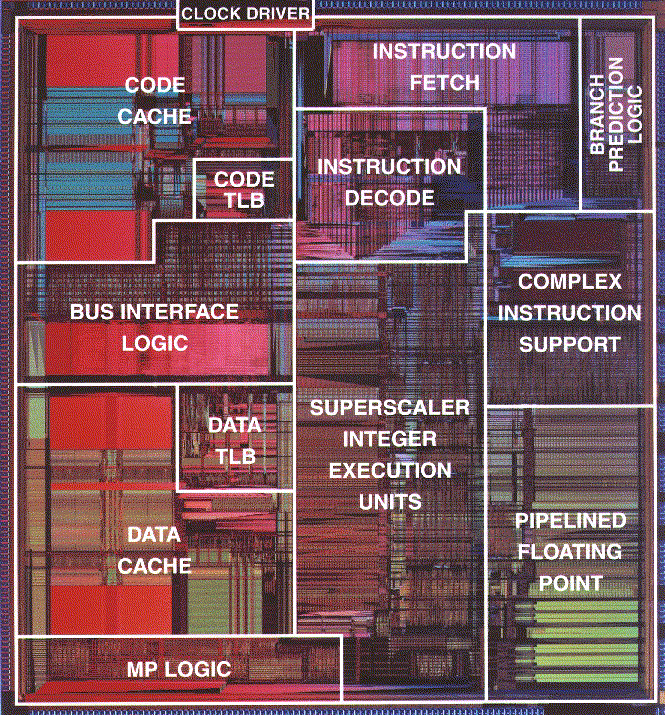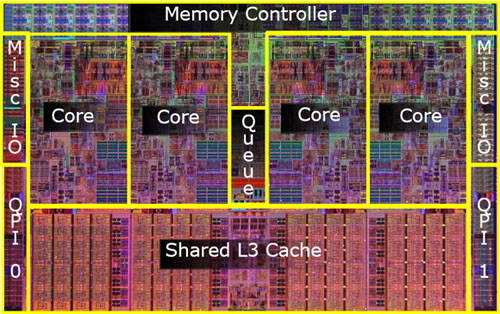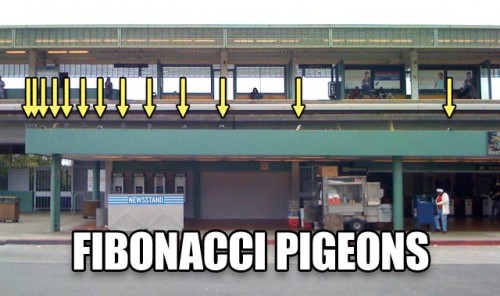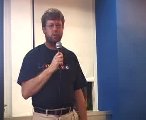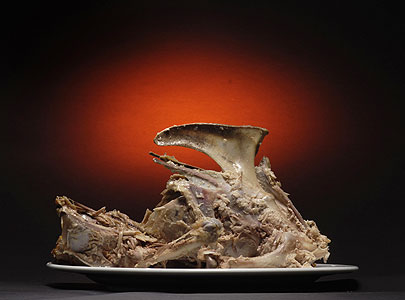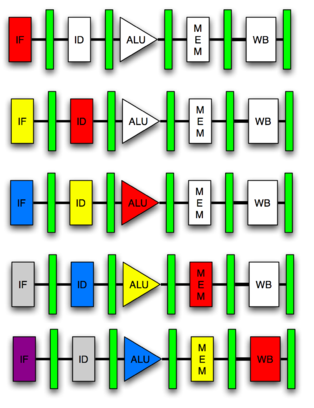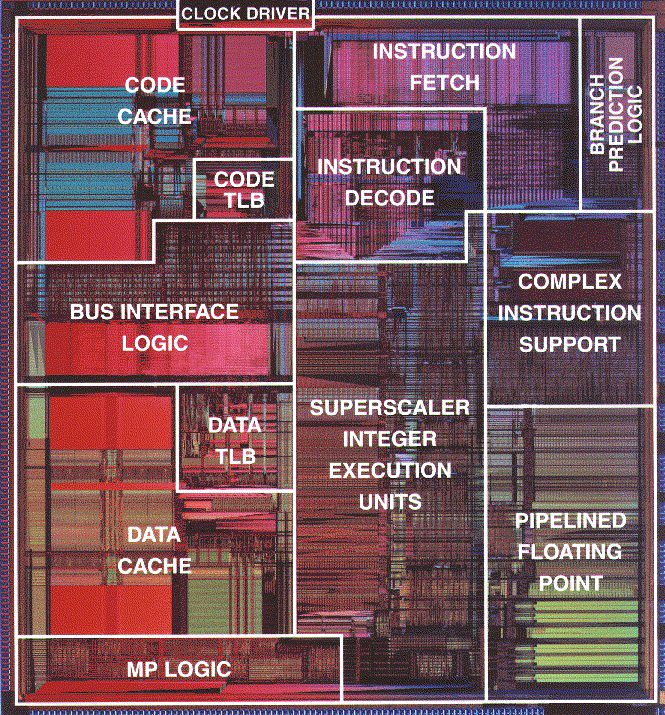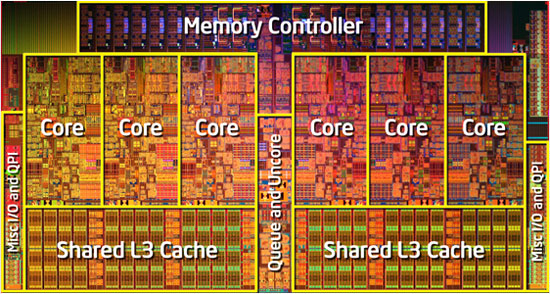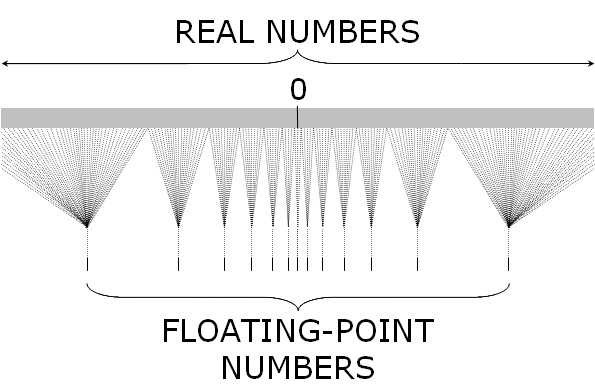Difference between revisions of "CSC231 Schedule 2010"
(Created page with ' =Weekly Schedule= {| style="width:100%" border="1" |- style="background:#ffdead;" |'''Week''' || '''Topics''' || '''Reading''' |-valign="top" |width="15%"| Week 1 <br /> 9/05…') |
|||
| (184 intermediate revisions by the same user not shown) | |||
| Line 1: | Line 1: | ||
| + | --[[User:Thiebaut|D. Thiebaut]] 08:28, 6 January 2011 (EST) | ||
| + | ---- | ||
| + | |||
| + | <br /> | ||
| + | <center> | ||
| + | [[CSC231 | Back to Main Page]] | [http://cs.smith.edu/classwiki/index.php/CSC231_Page_(2010) Class Wiki] | ||
| + | </center> | ||
| + | |||
| + | ---- | ||
| + | __TOC__ | ||
=Weekly Schedule= | =Weekly Schedule= | ||
| Line 6: | Line 16: | ||
|'''Week''' || '''Topics''' || '''Reading''' | |'''Week''' || '''Topics''' || '''Reading''' | ||
|-valign="top" | |-valign="top" | ||
| − | + | |width="15%"| Week 1 <br /> 9/08 | |
| − | |width="15%"| Week 1 <br /> 9/ | ||
|width="60%"| | |width="60%"| | ||
| − | * [[ | + | ;Wed 9/8 |
| − | * | + | * Introduction |
| − | * | + | * Syllabus |
| − | * | + | * The PC |
| − | + | ** What's inside? | |
| − | * [[CSC231_skeleton_program | | + | ** The main players |
| − | * [[ | + | * [[CSC231 FirstProg.asm | First program]] in assembly |
| − | * | + | ** structure |
| − | + | ** presentation | |
| + | ** documentation | ||
| + | ;Fri 9/10 | ||
| + | * [[CSC231_skeleton_program | Skeleton program]] | ||
| + | * "Hello world!" in assembly: [[CSC231 Hello World! | program]] | ||
| + | * Introduction to wikimedia | ||
| + | ** [http://en.wikipedia.org/wiki/Wikipedia:Cheatsheet Wikipedia Cheat-Sheet] | ||
| + | ** [http://www.mediawiki.org/wiki/Help:Formatting Formatting text] | ||
| + | ** [http://www.mediawiki.org/wiki/Help:Images Inserting images] | ||
| + | ** [http://www.mediawiki.org/wiki/Links Creating links] | ||
| + | * [[CSC231 Hello World on Mac | Hello world!]] for the Mac | ||
---- | ---- | ||
| + | * [[CSC231 PC-demolition Lab | PC Demolition Lab]] <--- report due next Friday, 9/17/10 | ||
| − | + | | | |
| − | + | * Chapter 1 in the [http://cs.smith.edu/~thiebaut/ArtOfAssembly/artofasm.html Art of Assembly]. | |
| − | Also Chapter 3, Sections 0 to 3.1.2. | + | * Also Chapter 3, Sections 0 to 3.1.2. |
| − | Sections 1.3.1, 1.3.2, 1.3.3, 1.3.4, and 1.3.5 in Carter's [http://cs.smith.edu/~thiebaut/classes/231_0405/doc/pcasm-book.pdf PC Assembly Language]. | + | * Sections 1.3.1, 1.3.2, 1.3.3, 1.3.4, and 1.3.5 in Carter's [http://cs.smith.edu/~thiebaut/classes/231_0405/doc/pcasm-book.pdf PC Assembly Language]. |
|- style="background:#eeeeff" valign="top" | |- style="background:#eeeeff" valign="top" | ||
| − | | Week 2 <br /> 9/ | + | | Week 2 <br /> 9/13 |
|| | || | ||
| − | * | + | ; '''Monday 9/13''' |
| − | * | + | * Mini Lab |
| − | * [http:// | + | * Assembling with the -l option to generate a listing |
| − | * | + | |
| − | * | + | nasm -f elf -F stabs -l helloworld.S helloworld.asm |
| − | + | ||
| − | + | * The memory contains numbers only | |
| − | * | + | * [http://en.wikipedia.org/wiki/Introduction_to_Boolean_algebra Boolean Algebra] |
| − | + | * Binary system | |
| − | * | + | * logic expressions |
| − | + | ; '''Wednesday 9/15''' | |
| + | * Digital Electronics Lab in FH143 | ||
| + | ; '''Friday 9/17''' | ||
| + | * Digital Electronics Lab in FH143 | ||
---- | ---- | ||
| − | + | * [[CSC231 Lab 1 | Mini Lab #1]] | |
| − | * [[ | + | * [[CSC231 Lab 2 (Digital Electronics) | Lab #2 ]] (Wednesday) |
| − | * [[ | + | * [[CSC231 Lab 3 (Digital Electronics) | Lab #3 ]] (Friday) |
| + | * [[CSC231 Homework 1 2010 | Homework #1 ]] and [[CSC231 Homework 1 Solutions 2010 | Solution Programs]] | ||
|| | || | ||
| − | * | + | * |
| − | |||
| − | |||
| − | |||
| − | |||
|- valign="top" | |- valign="top" | ||
| − | | Week 3 <br /> 9/ | + | | Week 3 <br /> 9/20 |
|| | || | ||
| − | * Review | + | [[Image:Pentium.gif|right|100px]] |
| − | * | + | [[Image:MultiCore.jpg|right|100px]] |
| − | ** [[ | + | ;Monday 9/20 |
| − | * | + | * Three-bit adder. Review |
| − | ** | + | * A word on Verilog and FPGAs [http://www.asic-world.com/verilog/gate1.html#Examples Examples] |
| − | ** [[ | + | * Architecture of the Pentium (simplified) |
| − | * | + | ;Wednesday 9/22 |
| − | * | + | * [[CSC231 ReverseEngineering.lst | Reverse engineering a listing]], and [[CSC231 ReverseEngineeringSol.asm|solution]]. |
| + | * [http://www.asciitable.com/ ASCII Table] | ||
| + | ;Friday 9/24 | ||
| + | * Comments on lab reports | ||
| + | * Once again: ''Everything in memory is a number!'' | ||
| + | * Review the [[CSC231 ReverseEngineering.lst | reverse engineering]] example | ||
| + | * [[CSC231 Exercises Binary Hexadecimal | Exercises on Binary/Hexadecimal]] (do on your own!) | ||
| + | * The '''mov''' instruction (covered [http://maven.smith.edu/~thiebaut/ArtOfAssembly/CH04/CH04-3.html#HEADING3-79 here]). | ||
| + | ** Introduction to the 32-bit registers: EAX, EBX, ECX, EDX | ||
| + | ** Introduction to the 16-bit registers: AX, BX, CX, DX | ||
| + | ** Introduction to the 8-bit registers: AL, AH, BL, BH, CL, CH, DL, DH | ||
| + | |||
---- | ---- | ||
| − | * [[ | + | * [[CSC231 Homework 2 2010 | Homework #2 ]] and [[CSC231 Homwork 2 Solution 2010| solution]] |
| − | |||
|| | || | ||
| − | + | * [http://maven.smith.edu/~thiebaut/ArtOfAssembly/CH03/CH03-1.html Basic Computer Organization], Sections 3.0, 3.1, 3.3.1 | |
| − | [http://maven.smith.edu/~thiebaut/ArtOfAssembly/ | + | * [http://webster.cs.ucr.edu/AoA/Linux/HTML/DataRepresentation.html#998846 Review Data Representation] |
| − | [http:// | + | * [http://webster.cs.ucr.edu/AoA/Linux/HTML/DataRepresentation2.html#998917 Bits, Nibbles, Bytes] |
| − | [http:// | + | * [http://webster.cs.ucr.edu/AoA/Linux/HTML/DataRepresentation3.html#1012324 The Hexadecimal System] |
| − | + | * [http://maven.smith.edu/~thiebaut/ArtOfAssembly/CH04/CH04-3.html#HEADING3-79 The MOV instruction] | |
|- style="background:#eeeeff" valign="top" | |- style="background:#eeeeff" valign="top" | ||
| − | | Week 4 <br /> 9/ | + | | Week 4 <br /> 9/27 |
|| | || | ||
| − | + | [[Image:FibonacciPigeons.jpg|200px|right]] | |
| − | * | + | ; Monday 9/27 |
| − | + | * The MOV Instruction | |
| − | * | + | *[[CSC231 Exercises with Mov, Arithmetic and Logic Instructions| Exercises with the MOV instruction]] |
| − | + | ; Wednesday 9/29 | |
| − | * | + | * <font color="green">MOUNTAIN DAY!</font> |
| − | * | + | ; Friday 10/1 |
| − | + | * Arithmetic instructions: '''ADD''', '''SUB''', '''INC''', '''DEC''' | |
| − | * | + | * Logic instructions: '''AND''', '''OR''', '''NOT''', '''XOR''' |
| − | + | * using DDD to debug programs | |
| − | * | + | * <font color="magenta">'''Lab 4''', Part 1</font> |
| + | |||
---- | ---- | ||
| − | * [[ | + | *[[CSC231 Lab 4: Debugger | Lab 4]]: Using the debugger |
| − | + | *[[CSC231 Homework 3 2010 | Homework #3]] and [[CSC231 Homework 3 Solutions 2010 | Solution]] | |
|| | || | ||
| − | * | + | * |
| − | |||
| − | |||
|- valign="top" | |- valign="top" | ||
| − | | Week 5 <br /> | + | | Week 5 <br /> 10/04 |
|| | || | ||
| − | + | ; Monday 10/4 | |
| − | * | + | *[[CSC231 Exercises with Mov, Arithmetic and Logic Instructions#Arithmetic_Instructions| Exercises with arithmetic instructions]] |
| − | * | + | * <font color="magenta">'''Lab 4''', Part 2</font> |
| − | + | ; Wednesday 10/6 | |
| − | * | + | * Representing negative numbers, Signed Magnitude, 1's complement, 2's complement. |
| − | * | + | * [[CSC231 Exercises on Signed Numbers | Exercises]] |
| − | + | ; Friday 10/8 | |
| − | + | * [[CSC231 Powers of 2 | A Table of powers of 2]]: this will be useful for the exercises of the day... | |
| − | + | * [[CSC231 C++ Program and infinite loops| C++ program looping forever]]... | |
| − | + | * [[CSC231 Python program and infinite loops | Python program looping forever]]... | |
| − | * [ | + | * [[CSC231 Mystery C Program with signed numbers | Problem of the day]]... |
| − | * [[ | ||
| − | * | ||
| − | * [ | ||
---- | ---- | ||
| − | * [[ | + | * [[CSC231 Lab 4: Debugger | Lab 4]]: Using the debugger |
| − | + | * [[CSC231 Homework 4 2010 | Homework #4]] and [[CSC231 Homework 4 Solutions -- 2010| Solution]] | |
|| | || | ||
| − | + | * Signed and unsigned numbers are covered in [http://maven.smith.edu/~thiebaut/ArtOfAssembly/CH01/CH01-2.html#HEADING2-96 Sections 1.7 and 1.8] and [http://maven.smith.edu/~thiebaut/classes/231_0607/doc/pcasm-book.pdf Chap. 2] | |
| + | * [http://en.wikipedia.org/wiki/Boolean_algebra_(introduction) Boolean Algebra] | ||
| + | |||
|- style="background:#eeeeff" valign="top" | |- style="background:#eeeeff" valign="top" | ||
| − | | Week 6<br /> 10/ | + | | Week 6<br /> 10/11 |
|| | || | ||
| − | + | <tanbox> | |
| − | * ''' | + | ;Monday |
| − | ** | + | : '''Fall Break''' |
| − | ** | + | </tanbox> |
| − | ** | + | ;Wednesday 10/13 |
| − | ** - | + | * Review 2's complement |
| − | ** | + | * An [[CSC231 C++ Assembly Code| example]] illlustrating what compiler code looks like. |
| − | ** [http:// | + | * Logic Design: Building a "subtractor" with an adder, using only AND, OR, NOT and XOR gates. |
| − | + | * Mul/Div | |
| − | * | + | * Exercise: Teller Machine |
| + | ; Friday 10/15 | ||
| + | * Addressing Modes | ||
| + | * '''Question of the day''': What is an instruction set? Is there a best way to define an instruction set? | ||
| + | * [http://en.wikipedia.org/wiki/X86_instruction_listings Pentium Instruction Set] | ||
| + | * Cool videos for a rainy afternoon | ||
| + | **[[Image:googleVideos.png | 100px ]] [http://video.google.com/videoplay?docid=-7758421725489622662&ei=hQK5Sb3TG5K-rwK4k53oAg&q=guido+rossun&hl=en Introduction to Python] by Guido van Rossun, from Google Videos. The first 15 minutes are fine. You can skip the rest! | ||
| + | **[http://video.google.com/videoplay?docid=9023849479319414382&hl=en Intro to Python] (The first 5 minutes are good). | ||
| + | ** [[Image:GuidoVanRossun.jpg | 100px ]] More videos of [http://video.google.com/videosearch?q=guido+rossun&hl=en&emb=0# Guido van Rossun], the creator of Python. | ||
| + | * The main addressing modes: | ||
| + | **inherent | ||
| + | **register | ||
| + | **immediate | ||
| + | **direct | ||
| + | **indirect/based/indexed | ||
| + | **indirect with displacement | ||
| + | **base-indexed | ||
| + | **base-indexed with displacement | ||
| + | * [[CSC231_Addressing_Mode_Exercises | Exercises on Addressing Modes]] | ||
| + | * [http://www.asciitable.com/ Ascii Table] | ||
| + | |||
| + | ---- | ||
| + | * No homework assignment this week. Prepare for midterm! | ||
|| | || | ||
| − | * | + | *The signed and unsigned representations of numbers are covered in [http://maven.smith.edu/~thiebaut/ArtOfAssembly/CH01/CH01-2.html#HEADING2-96 Sections 1.7 and 1.8] of The Art of Assembly, and in [http://maven.smith.edu/~thiebaut/classes/231_0607/doc/pcasm-book.pdf Chapter 2] of Carter's PC Assembly Language. |
| − | + | * [http://maven.smith.edu/~thiebaut/ArtOfAssembly/CH04/CH04-2.html#HEADING2-1 Addressing modes] are covered in Chapter 4 of The Art of Assembly. We won't cover "Displacement Only Addressing" modes (Section 4.6.2.1). Mentally replace 16-bit registers by 32-bit registers when reading this section. | |
| − | |||
|- valign="top" | |- valign="top" | ||
| − | | Week 7 <br /> 10/ | + | | Week 7 <br /> 10/18 |
|| | || | ||
| − | + | <bluebox> | |
| − | + | ; '''Monday 10/18''': In class <font color="magenta">Midterm Exam</font> | |
| − | + | : [[CSC231_Midterm_Preparation | Sample Questions]] to get ready... | |
| − | * | + | </bluebox> |
| + | ; '''Wednesday 10/20''': | ||
| + | * The '''Loop''' instruction | ||
| + | * [[CSC231 Loop Exercises | Exercises]] on loops | ||
| + | * Review of addressing modes | ||
| + | * Return to the [[CSC231_Addressing_Mode_Exercises | exercises on '''addressing modes''']], but now use loops | ||
| + | ; '''Friday 10/22''': | ||
| + | * <font color="magenta">'''Lab 5'''</font> | ||
| + | * Loops and Addressing Modes | ||
---- | ---- | ||
| − | * [[ | + | * [[CSC231 Homework 5 2010 | Homework #5]] and [[CSC231 Homework 5 Solutions 2010 | Solution Programs]] |
| − | * [[ | + | * [[CSC231 Lab 5 2010 | Lab 5]] |
| − | || | + | || |
| + | * [http://maven.smith.edu/~thiebaut/ArtOfAssembly/CH06/CH06-5.html#HEADING5-294 The Loop instruction] | ||
| + | * [http://maven.smith.edu/~thiebaut/ArtOfAssembly/CH06/CH06-1.html#HEADING1-160 The Push and Pop instructions] | ||
| + | |||
|- style="background:#eeeeff" valign="top" | |- style="background:#eeeeff" valign="top" | ||
| − | | Week 8 <br /> 10/ | + | | Week 8 <br /> 10/25 |
|| | || | ||
| − | * ''' | + | <videoflash>zC5KFnSUPNo</videoflash> |
| − | * | + | ;Monday 10/25 |
| − | ** | + | * The '''shift instructions''': SHR, SHL, logical and arithmetic variants. |
| − | * | + | * Sound waves, a bit of physics |
| − | * ''' | + | * The format of wav sound files |
| + | * A demo program: [[CSC231 readWaveFile.asm | readWaveFile.asm]] | ||
| + | ;Wednesday 10/27 | ||
| + | * Using a [[CSC231 Makefile for Lab 5 | Makefile]] for Lab 5 | ||
| + | * Challenge of the day: clip 8-bit samples by forcing overflow to 0xff... | ||
| + | * Examples with wav files: | ||
| + | * <font color="magenta">'''Lab 6'''</font> | ||
| + | ;Friday 10/29 | ||
| + | * Continue with <font color="magenta">'''Lab 6'''</font> | ||
---- | ---- | ||
| − | * [[CSC231 Homework 6 | Homework | + | * [[CSC231 Lab 6 2010 | Lab 6]] |
| + | * [[CSC231 Homework 6 2010 | Homework 6]] and [[CSC231 Homework 6 Solution 2010 | Solution Program]] | ||
|| | || | ||
| − | * [http://maven.smith.edu/~thiebaut/ArtOfAssembly/CH06/CH06- | + | * [https://ccrma.stanford.edu/courses/422/projects/WaveFormat/ The Wav File Format] |
| − | + | * The '''shifts instructions''' are covered in [http://maven.smith.edu/~thiebaut/ArtOfAssembly/CH06/CH06-3.html#HEADING3-42 Chapter 6] of the [http://maven.smith.edu/~thiebaut/ArtOfAssembly/artofasm.html Art of Assembly] reference. | |
|- valign="top" | |- valign="top" | ||
| − | | Week 9 <br /> | + | | Week 9 <br /> 11/01 |
|| | || | ||
| − | * | + | ;Monday 11/01 |
| − | ** | + | * Functions |
| − | ** | + | ** Using the stack |
| − | ** [[CSC231 Exercises | + | ** Passing parameters |
| − | + | *** by value | |
| − | * | + | *** by reference |
| − | ** | + | *** functions returning values |
| − | ** [[CSC231 | + | * [[CSC231 Exercises On Functions | Exercises on Functions]] |
| − | + | ;Wednesday 11/03 | |
| + | * Review of functions: passing parameters through registers | ||
| + | ** push/pop | ||
| + | ** organization (example program: [[CSC231 maze.asm | maze.asm]]) | ||
| + | ** examples involving copying buffers | ||
| + | ;Friday 11/05 | ||
| + | * Passing parameters through the stack | ||
| + | * [[CSC231 Lab 7 2010 |<font color="magenta">''' Lab 7'''</font>]] | ||
---- | ---- | ||
| − | * [[CSC231 Homework 7 | Homework | + | * [[CSC231 Homework 7 2010 | Homework 7]] and [[CSC231 Homework 7 Solution 2010 | Solution Program]] |
| − | * [[CSC231 Lab | + | * [[CSC231 Lab 7 2010 | Lab 7]] and [[CSC220 Lab 7 Solutions 2010| Solution Programs]] |
|| | || | ||
| − | * | + | * [http://maven.smith.edu/~thiebaut/ArtOfAssembly/CH06/CH06-5.html#HEADING5-98 The Call and Ret Instructions] |
| − | + | * Functions and the topics associated with passing parameters are covered in Carter's Manual on Assembly Language, in [http://maven.smith.edu/~thiebaut/classes/231_0405/doc/pcasm-book.pdf Chapter 4], titled ''Subprograms''. | |
|- style="background:#eeeeff" valign="top" | |- style="background:#eeeeff" valign="top" | ||
| − | | Week 10 <br /> 11/ | + | | Week 10 <br /> 11/08 |
|| | || | ||
| − | * ''' | + | ;Monday 11/08 |
| − | + | * We continue with [[CSC231 Lab 7 2010 |<font color="magenta">''' Lab 7'''</font>]] | |
| − | + | ;Wednesday 11/10 | |
| − | + | * [[CSC231 No-no! and Be-Careful! situations | No No, don't do that!]] | |
| − | *** | + | * Int-returning function |
| − | *** [[CSC231 | + | * Declaring temporary variables in functions |
| − | + | * Passing by reference | |
| − | + | ;Friday 11/12 | |
| − | + | * Review | |
| − | + | ** [[CSC231 SumProc1.asm |sumProc1.asm]]: Pass through registers | |
| − | + | ** [[CSC231 SumProc2.asm |sumProc2.asm]]: Pass by value | |
| − | * | + | ** [[CSC231 SumProc3.asm |sumProc3.asm]]: Int returning function |
| + | ** [[CSC231 SumProc4.asm |sumProc4.asm]]: Pass by reference | ||
| + | ** [[CSC231 SumProc5.asm |sumProc5.asm]]: <font color="magenta">'''Local variables'''</font> | ||
| + | * Introduction to [[CSC231 Homework 8 2010 | Homework 8]] | ||
| + | * Top-Down design (again!) | ||
| + | |||
---- | ---- | ||
| − | * [[CSC231 Homework 8 | Homework | + | * [[CSC231 Lab 7 2010 | Lab 7]] |
| + | * [[CSC231 Homework 8 2010 | Homework 8]] and [[CSC231 Homework 8 Solution Program 2010 | solution program]] | ||
| − | |||
|| | || | ||
| − | * [http:// | + | * the preprocessor directive '''%define''' is fully explained [http://www.tortall.net/projects/yasm/manual/html/nasm-preprocessor.html#nasm-macro-define here]. |
| + | * The [http://faydoc.tripod.com/cpu/pushad.htm PUSHAD] instruction | ||
| + | |||
|- valign="top" | |- valign="top" | ||
| − | | Week 11 <br /> 11/ | + | | Week 11 <br /> 11/15 |
|| | || | ||
| − | + | ; Monday 11/15 | |
| − | * | + | * Compare instruction and [http://maven.smith.edu/~thiebaut/ArtOfAssembly/CH06/CH06-1.html#HEADING1-27 flag bits] |
| − | * | + | * A [[CSC231 Flags Settings Examples | Program]] using compare instruction and showing flag settings |
| − | + | * [[CSC231 Exercises with conditional jumps | Exsercises]] with conditional jumps | |
| − | * | + | ; Wednesday 11/17 |
| − | + | * Continuation of [[CSC231 Exercises with conditional jumps | Exsercises]] on conditional jumps | |
| − | * ''' | + | ; Friday 11/19 |
| − | * | + | * Functions + tests = '''Recursion''' |
| − | + | * [[CSC220 Factorial.asm | factorial.asm]] | |
| − | + | ---- | |
| − | * | + | * No homework assignment this week! |
| − | |||
| − | |||
| − | |||
|| | || | ||
| − | * [http:// | + | * [http://maven.smith.edu/~thiebaut/ArtOfAssembly/CH06/CH06-1.html#HEADING1-27 The Flag Bits] |
| − | * | + | * [http://maven.smith.edu/~thiebaut/ArtOfAssembly/CH06/CH06-5.html#HEADING5-226 Conditional Jumps] |
| − | * | + | * [[CSC231 Pentium Instructions and Flags | What instructions modify flags]] |
| − | + | ||
|- style="background:#eeeeff" valign="top" | |- style="background:#eeeeff" valign="top" | ||
| − | | Week 12 <br /> 11/ | + | | Week 12 <br /> 11/22 |
|| | || | ||
| − | + | ; Monday | |
| − | ** | + | * Continuation of Coverage of Recursion |
| − | * | + | * <!--videoflash>5X8cM2JiqzI</videoflash--> |
| − | + | * Video: History of Computers | |
| − | + | <tanbox> | |
| − | + | <!--[[Image:dancingCalving.gif | right]]--> | |
| − | + | [[Image:turkeyCarcass.jpg | 200px | right]] | |
| − | + | ; Wednesday: '''Thanksgiving Break''' | |
| − | + | ; Friday: '''Thanksgiving Break''' | |
| + | </tanbox> | ||
---- | ---- | ||
| − | * | + | * |
|| | || | ||
| − | * | + | * |
| − | + | ||
|- valign="top" | |- valign="top" | ||
| − | | Week 13 <br /> 11/ | + | | Week 13 <br /> 11/29 |
|| | || | ||
| − | [[ | + | ; Monday 11/29 |
| − | * | + | * More on Recursion: Multiplication |
| − | * | + | * [[CSC231 Recursive Multiplication | Recursive Multiplication Algorithm]] |
| − | ** | + | ; Wednesday 12/1 |
| − | ** | + | * [[CSC231 FindLargestOfArray.asm | Searching a 1-dimensional array for the largest/smallest element]] |
| − | ** | + | * Sketching binary-search on an array |
| − | + | * A demo: comparison of interpreted versus compiled languages: [[CSC231: N-Queens Problem: interpreted vs compiled|The N-Queens test]] | |
| − | * | + | ; Friday 12/3 |
| + | * Discussion: [http://en.wikipedia.org/wiki/Compiler_optimization compiler optimizations] | ||
| + | * [http://en.wikibooks.org/wiki/Microprocessor_Design/Pipelined_Processors Pipelines] | ||
| + | ** <center>[[Image:CSC231_pipeline1.png|200px]]</center> | ||
| + | ** <center>[[Image:CSC231_pipeline2.png|400px]]</center> | ||
| + | ** <center>[[Image:CSC231_PentiumDie2.gif|400px]]</center> | ||
| + | ** <center>[[Image:CSC231_PentiumDie6core.jpg|400px]]</center> | ||
| + | |||
| + | ---- | ||
| + | * [[CSC231 Homework 9 2010 | Homework #9]] and [[CSC231 Homework 9 Solution 2010 | Solution Program]] | ||
|| | || | ||
| − | * | + | * [http://en.wikipedia.org/wiki/Compiler_optimization Compiler optimization] on wikipedia. |
| − | * [http:// | + | * [http://cs.smith.edu/~thiebaut/classes/231_0405/doc/pcasm-book.pdf Section 4.8] of Carter's Assembly Manual on recursion. |
| − | * [http:// | + | * [http://en.wikibooks.org/wiki/Microprocessor_Design/Pipelined_Processors Pentium pipelining] |
| − | * [http:// | + | * A very good description of the Pentium 4 Architecture at [http://www.hardwaresecrets.com/article/235 www.hardwaresecrets.com] |
| + | * Some parameters for virtual memory (taken from [http://www.cp.eng.chula.ac.th/~piak/teaching/ca/vm.htm www.cp.eng.chula.ac.th]): | ||
| + | **Typical range of parameters for virtual memory | ||
| + | ** | ||
| + | <center> | ||
| + | {| | ||
| + | |block (page) size | ||
| + | |512-8192 bytes | ||
| + | |- | ||
| + | |hit time | ||
| + | |1-10 clock cycles | ||
| + | |- | ||
| + | |miss penalty | ||
| + | |100,000-600,000 clocks | ||
| + | |- | ||
| + | |(access time) | ||
| + | | (100,000-500,000 clocks) | ||
| + | |- | ||
| + | |(transfer time) | ||
| + | | (10,000-100,000 clocks) | ||
| + | |- | ||
| + | |miss rate | ||
| + | |0.00001% - 0.001% | ||
| + | |- | ||
| + | |main memory size | ||
| + | |4 MB - 2048 MB | ||
| + | |} | ||
| + | </center> | ||
|- style="background:#eeeeff" valign="top" | |- style="background:#eeeeff" valign="top" | ||
| − | | Week 14 <br /> 12/ | + | | Week 14 <br /> 12/06 |
|| | || | ||
| − | + | ; Monday 12/06 | |
| − | + | * Continue with pipelines | |
| − | + | * Virtual Memory | |
| − | * | + | ; Wednesday 12/08 |
| − | * | + | * Cache Memory |
| − | + | * Average Access Time | |
| − | * | + | * Back to compiler optimization |
| − | * | + | **Pipeline-related |
| − | * | + | ***Delayed branches |
| − | ** | + | ***Instruction reordering |
| − | *** | + | **Cache-oriented |
| − | *** | + | ***use of registers instead of memory ([http://ee.hawaii.edu/~tep/EE160/Book/chap14/subsection2.1.1.2.html register variables]) |
| − | ** | + | * A [[CSC231 generateRandomNumbers.asm| program]] to generate random numbers |
| − | *** | + | ; Friday 12/10 |
| − | + | * 2-D arrays | |
| − | + | * Floating Point Numbers | |
| − | + | ** Fixed-point format | |
| − | * | ||
| − | * | ||
| − | ** | ||
** [http://maven.smith.edu/~thiebaut/classes/231/floatingpoint.html Floating-Point Converter] applet. | ** [http://maven.smith.edu/~thiebaut/classes/231/floatingpoint.html Floating-Point Converter] applet. | ||
---- | ---- | ||
| − | *[[CSC231 Homework | + | * [[CSC231 Homework 10 2010 | (''Optional'') Homework #10]] and [[CSC231 Homework 10 Solution 2010| solution program]] |
| − | |||
|| | || | ||
| − | * [http:// | + | * [http://webster.cs.ucr.edu/AoA/Windows/HTML/Arraysa2.html 2D Arrays] |
| − | * [http:// | + | * [http://steve.hollasch.net/cgindex/coding/ieeefloat.html A good introduction to Floating Point Numbers], nicely presented. Similary, a [http://www.cs.princeton.edu/introcs/91float/ page] from Princeton's Intro to CS on floating points. |
| − | + | * [http://en.wikipedia.org/wiki/Floating_point General description] of the floating-point notation on Wikipedia. | |
| − | |||
| − | |||
| − | * [http://en.wikipedia.org/wiki/Floating_point General description] of the floating-point notation | ||
* [http://www.python.org/doc/2.5.2/tut/node16.html A very good description of the limitations] of floating-point numbers in Python: Read it! | * [http://www.python.org/doc/2.5.2/tut/node16.html A very good description of the limitations] of floating-point numbers in Python: Read it! | ||
* Also, not to be missed: [http://www.lahey.com/float.htm The perils of floating-point] | * Also, not to be missed: [http://www.lahey.com/float.htm The perils of floating-point] | ||
* [http://www.programmers-corner.com/tutorial/31?PHPSESSID=4bbf1f2b76df390e1bad01a9f8462854 Floating Point in Assembly]: some high level stuff! | * [http://www.programmers-corner.com/tutorial/31?PHPSESSID=4bbf1f2b76df390e1bad01a9f8462854 Floating Point in Assembly]: some high level stuff! | ||
| + | * | ||
| + | |||
| + | |||
| + | |||
|- valign="top" | |- valign="top" | ||
| − | | Week 15 <br /> 12/ | + | | Week 15 <br /> 12/13 |
|| | || | ||
| − | + | [[Image:CSC231RangeOfFloats.jpg |200px|right|link=http://jasss.soc.surrey.ac.uk/9/4/4.html]] | |
| − | * | + | ; '''Monday''' ''<font color="magenta">Last Class</font>'' |
| − | ** | + | * IEEE Floating-Point Representation |
| − | ** Floating-Point | + | ** Exponent: 4 special cases: zero, denormalized numbers, infinity, NaN |
| + | ** [http://maven.smith.edu/~thiebaut/classes/231/floatingpoint.html Floating-Point Converter] applet. | ||
| + | ** Range of IEEE Floats | ||
| + | ** Compare range of floats to ints. Ask [http://www.wolframalpha.com/input/?i=10^32+inches Wolfram Alpha] what is 10^32 inches! | ||
| + | ** Adding two floats | ||
| + | ** Examples of Floating-Point operations in Assembly | ||
*** [[CSC231 Float1.asm | float1.asm]]: printing a float in assembly | *** [[CSC231 Float1.asm | float1.asm]]: printing a float in assembly | ||
*** [[CSC231 Float2.asm | float2.asm]]: transforms an int into a float | *** [[CSC231 Float2.asm | float2.asm]]: transforms an int into a float | ||
*** [[CSC231 Float3.asm | float3.asm]]: computes a = 10.5; b = 5.5; y = 3 * ( a - b ) + PI in assembly. | *** [[CSC231 Float3.asm | float3.asm]]: computes a = 10.5; b = 5.5; y = 3 * ( a - b ) + PI in assembly. | ||
| − | + | <br /> | |
| − | < | + | <br /> |
| − | + | <br /> | |
| − | + | <br /> | |
| − | + | ||
| + | ---- | ||
| + | * [[CSC231_Lab_8 2010 | A Lab on Floating-Point Numbers] to explore on your own! | ||
| + | * [[CSC231 Final Exam 2010 | Final Exam]] --> due date = ''12:00 p.m. on Monday December 20, 2010'' | ||
|| | || | ||
| + | * [http://www.cs.umd.edu/class/spring2003/cmsc311/Notes/BinMath/addFloat.html Notes on adding floating-point numbers] | ||
| + | |||
| − | |||
| − | |||
| − | |||
| − | |||
| − | |||
| − | |||
| − | |||
| − | |||
| − | |||
| Line 324: | Line 439: | ||
|} | |} | ||
| − | =List of Programs= | + | * [[media:helpnotes.pdf | Help Notes]] |
| + | |||
| + | =List of Selected Programs= | ||
== Assembly== | == Assembly== | ||
| − | |||
| − | |||
| − | |||
| − | |||
| − | |||
| − | |||
| − | |||
| − | |||
| − | |||
| − | |||
| − | |||
| − | |||
| − | |||
| − | |||
| − | |||
| − | |||
| − | |||
| − | |||
| − | |||
| − | |||
| − | |||
| − | |||
| − | |||
| − | |||
| − | |||
| − | |||
| − | |||
| − | |||
| − | |||
| − | |||
| − | |||
| − | |||
| − | |||
| − | |||
| − | |||
| − | |||
| − | |||
| − | |||
| − | |||
| − | == | + | * [[:Category:Asm | Assembly Programs]] |
| − | * [[CSC231 | + | |
| − | * [ | + | =Miscellaneous Information= |
| − | * [ | + | |
| − | * [ | + | * [[CSC231 Pentium Instructions| List of Pentium Instructions]] with Op-Codes |
| − | * [ | + | * [http://en.wikipedia.org/wiki/X86_instruction_listings Pentium Instruction Set] |
| + | * [https://ccrma.stanford.edu/courses/422/projects/WaveFormat/ The Wav File Format] | ||
| + | |||
| + | * [http://tango.csc.smith.edu/classwiki/index.php?title=CSC231_Things_to_Remember_when_Writing_Assembly_Programs Things to remember] when working on homework assignments... | ||
| + | |||
| + | ==Linux Related== | ||
| + | * [http://bluemaster.iu.hio.no/edu/dark/lin-asm/syscalls.html System Calls] | ||
| + | <br /> | ||
| + | |||
| + | <br /> | ||
| − | + | <br /> | |
| − | |||
| − | |||
| − | |||
| − | |||
| − | |||
| − | |||
| − | |||
| − | |||
| − | + | <br /> | |
| − | |||
| − | |||
| − | |||
| − | + | <br /> | |
| + | |||
| + | <br /> | ||
| − | + | <br /> | |
| + | [[Category:CSC231]][[Category:Asm]] | ||
Latest revision as of 20:43, 3 November 2014
--D. Thiebaut 08:28, 6 January 2011 (EST)
Contents
Weekly Schedule
| Week | Topics | Reading | ||||||||||||||
| Week 1 9/08 |
|
| ||||||||||||||
| Week 2 9/13 |
nasm -f elf -F stabs -l helloworld.S helloworld.asm
|
| ||||||||||||||
| Week 3 9/20 |
|
| ||||||||||||||
| Week 4 9/27 |
|
| ||||||||||||||
| Week 5 10/04 |
|
| ||||||||||||||
| Week 6 10/11 |
|
| ||||||||||||||
| Week 7 10/18 |
|
| ||||||||||||||
| Week 8 10/25 |
|
| ||||||||||||||
| Week 9 11/01 |
|
| ||||||||||||||
| Week 10 11/08 |
|
|||||||||||||||
| Week 11 11/15 |
|
|||||||||||||||
| Week 12 11/22 |
|
| ||||||||||||||
| Week 13 11/29 |
|
| ||||||||||||||
| Week 14 12/06 |
|
| ||||||||||||||
| Week 15 12/13 |
|
|
List of Selected Programs
Assembly
Miscellaneous Information
- Things to remember when working on homework assignments...
Linux Related
